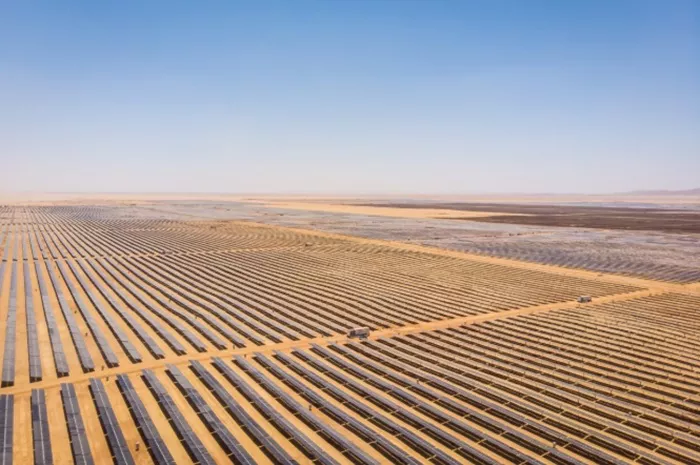British International Investment (BII), the African Development Bank (AfDB), and the European Bank for Reconstruction and Development (EBRD) are jointly funding a $479.1 million (€416.5 million) project to build a solar power plant and battery energy storage system (BESS) in Egypt. The project is owned by Norwegian company Scatec.
The project will include a 1.1 gigawatt (GW) solar photovoltaic (PV) plant and a 200 megawatt-hour (MWh) battery storage system near the River Nile in Nagaa Hammadi, central Egypt. It is managed by Obelisk Solar Power, a company created by Scatec that is working on several solar projects in Egypt. The funding covers about 80% of the total estimated cost of $590 million.
Once completed, the Obelisk project will produce around 3,000 gigawatt-hours of renewable energy each year. The combination of solar power and battery storage will allow the electricity to be supplied more reliably, helping Egypt’s power grid to stay stable and meet high demand times. It is also expected to reduce carbon dioxide emissions by up to 1.4 million metric tons annually.
Obelisk is planned to start full operations in the second half of 2026. The electricity generated will be sold to the Egyptian Electricity Transmission Company under a 25-year contract, paid in US dollars and guaranteed by the Egyptian government.
This is the largest integrated solar and battery project in Egypt to date. It forms part of Egypt’s fast-track 4GW Emergency Renewable Energy Programme, created to address the country’s energy shortage caused by rising demand and limited natural gas supply.
Egypt aims to have 42% of its electricity come from renewable sources by 2030. However, as of mid-2024, renewable energy (including solar, wind, and hydro) only accounted for 11.5% of the country’s electricity.
Funding Details
Out of the $479.1 million funding package for the Obelisk project:
- AfDB is contributing $184.1 million
- EBRD is providing up to $180 million
- BII is providing $115 million
AfDB’s share includes $125.5 million from its own funds and $38.6 million in concessional loans from special funds, such as the Sustainable Energy Fund for Africa and the Canada-African Development Bank Climate Fund. It will also channel $20 million from the Climate Investment Fund’s Clean Technology Fund.
The EBRD’s financing includes $173.5 million supported by $101.9 million in guarantees from the European Fund for Sustainable Development (EFSD+) for the first 18 years, plus a $6.5 million grant from its Shareholder Special Fund.
BII’s contribution consists of a $100 million concessional loan and a $15 million returnable grant. The UK development finance institution said the funds are subject to certain conditions before being released.
Industry Insight
Iain Macaulay, BII’s director for project finance in Africa and Pakistan, told Impact Investor that the falling costs of battery technology are making large solar-plus-storage projects more affordable. He noted similar projects in Senegal and South Africa, but the Obelisk project is on a much larger scale.
Macaulay believes this project will show that large solar and battery investments can work well in Egypt and other African countries. This could encourage more private investors to back such projects, reducing the need for government or development finance institution (DFI) support.
He explained, “It’s not only about the technology itself, but also how the energy fits into the grid and benefits the utility. We hope this project proves that dispatchable renewable power is a good solution.”
Previous and Related Projects
BII has prior experience in large-scale solar-plus-storage projects. In 2022, it partnered with Standard Bank and H1 Holdings to fund a $1 billion renewables-plus-battery project in South Africa, also developed by Scatec. BII provided $135 million in senior debt and $26 million in mezzanine financing for that project.
In Egypt, the International Finance Corporation (IFC) recently invested $72 million to support an AMEA Power solar project. This includes a 300 MWh battery system combined with a 500 MW solar plant near Aswan, which started operating in November 2024.

